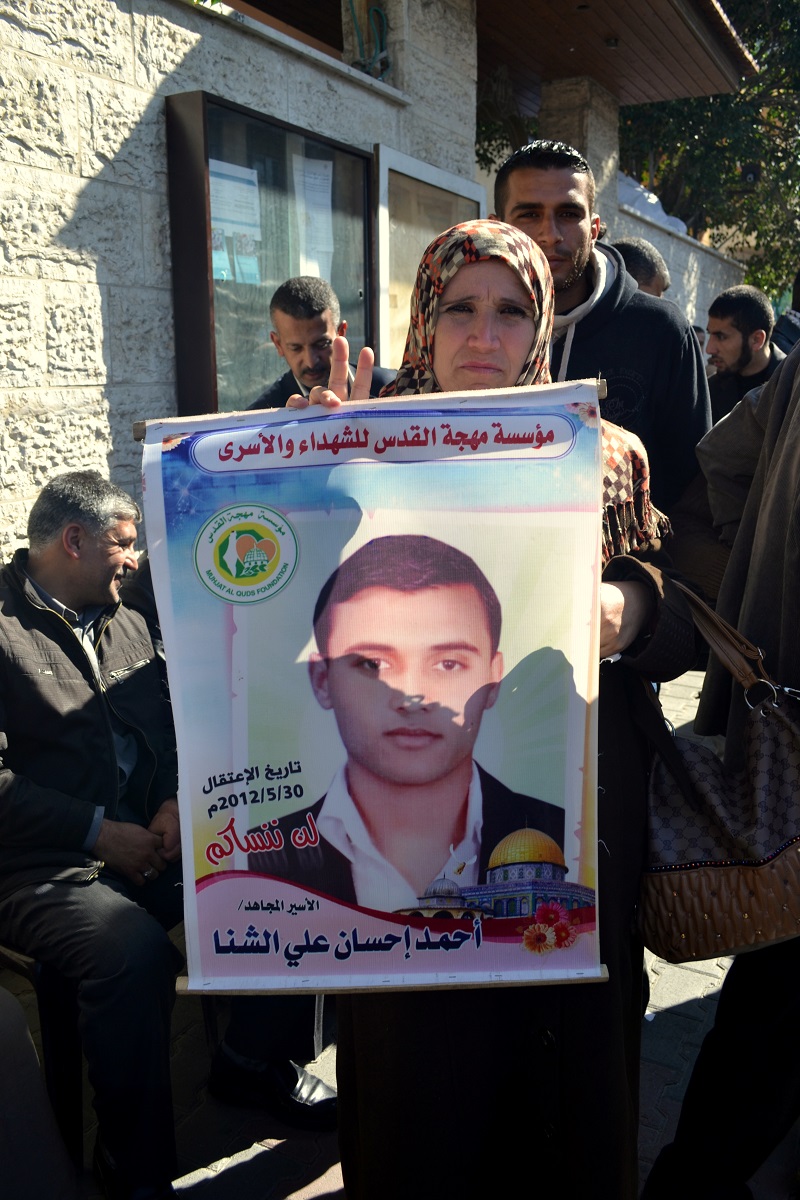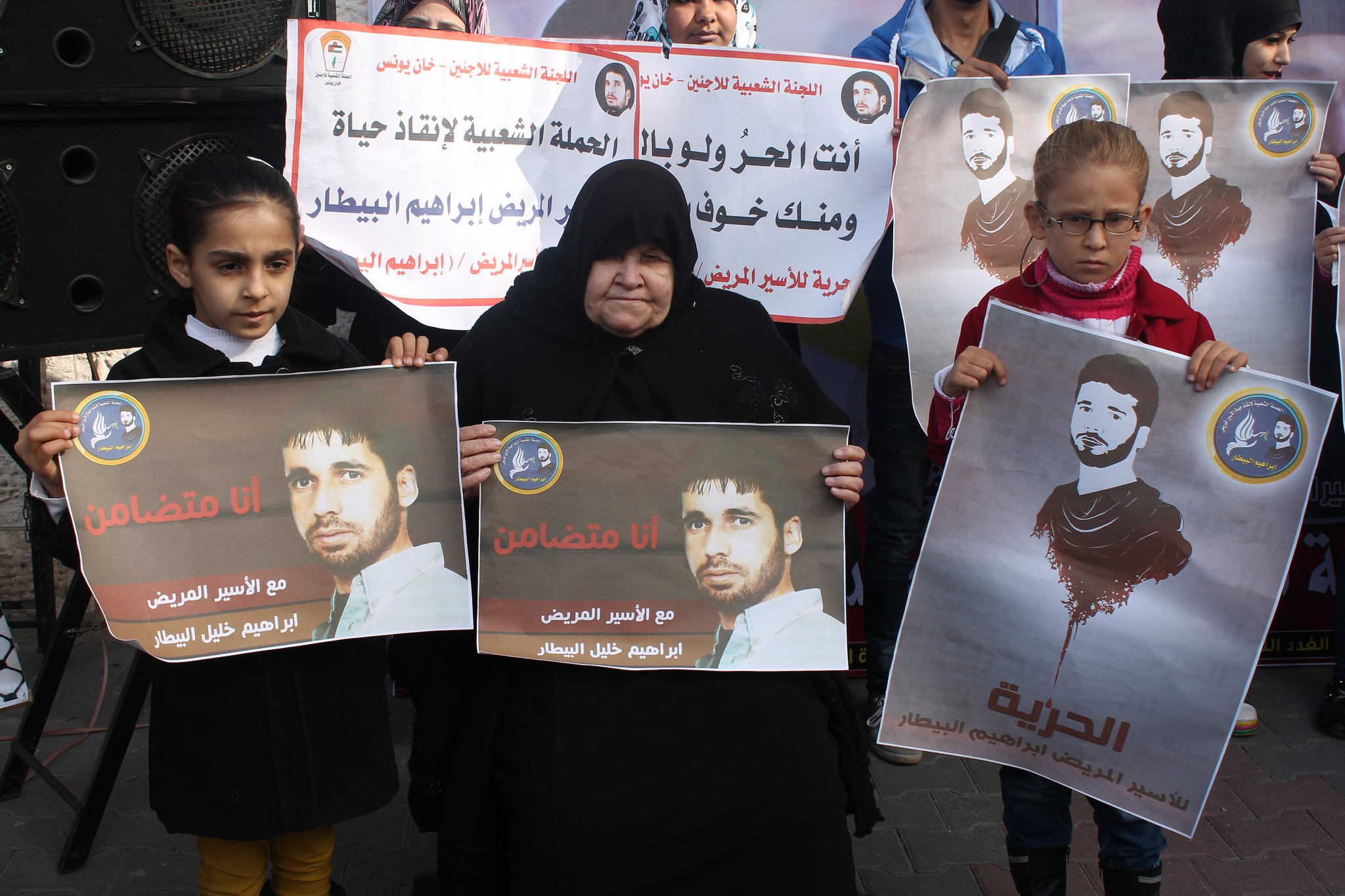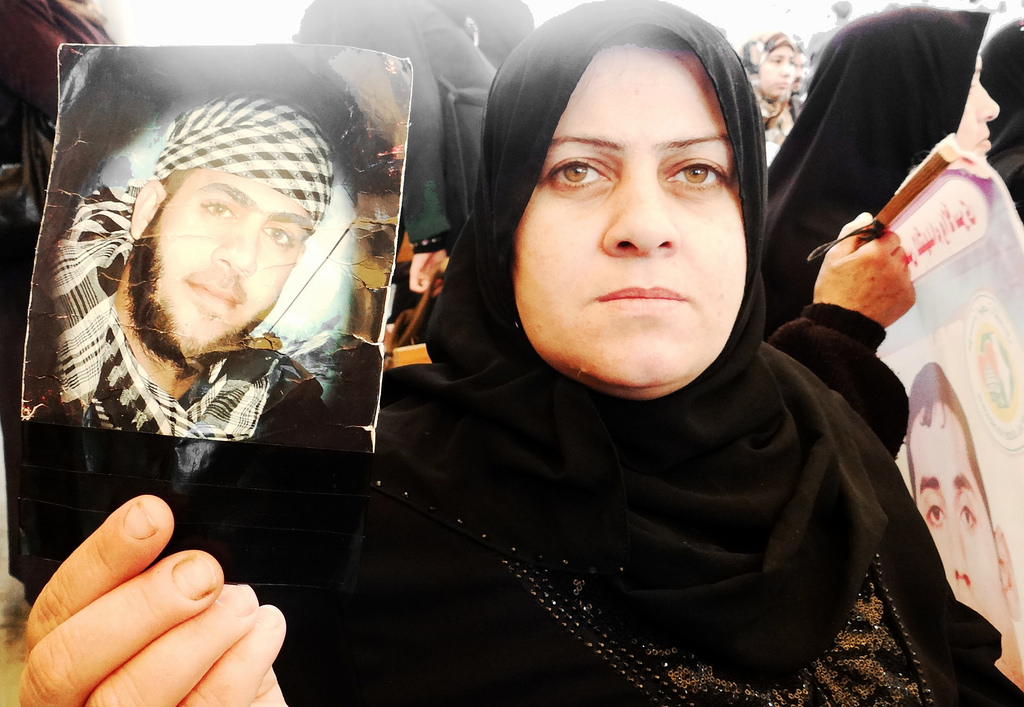Tag: Prisoner
-
“I hope one day all the Palestinian prisoners in Israeli jails will win their freedom”
11th February 2014 | International Solidarity Movement, Gaza Team | Gaza, Occupied Palestine Friends and relatives, as well as local and international activists, gathered Monday morning at the International Committee of the Red Cross in Gaza to demonstrate, like every week, in support of the Palestinian prisoners in Israeli jails. “My cousin was arrested during…
-
Gaza rallies in support of critically ill prisoner
9th February 2014 | The Electronic Intifada, Joe Catron | Gaza City, Occupied Palestine Sit-ins to support Palestinian prisoners — held every week since 1995 in the courtyard of the International Committee of the Red Cross’ Gaza office — have recently been followed by rallies outside for Ibrahim Bitar, a sick detainee in Israel’s Nafha prison. “We’ve garnered internal support for my…
-
In Gaza, remembering the sick Palestinian political prisoners in Israeli jails
2nd February 2014 | Resistenza Quotidiana, Sil | Gaza, Occupied Palestine At this week’s Gaza sit-in in solidarity with political prisoners in Israeli jails, the focus was on the sick prisoners. The Palestinian political prisoners in need of medical care number about 1,000, and the lives of many are in danger because they are often denied…



